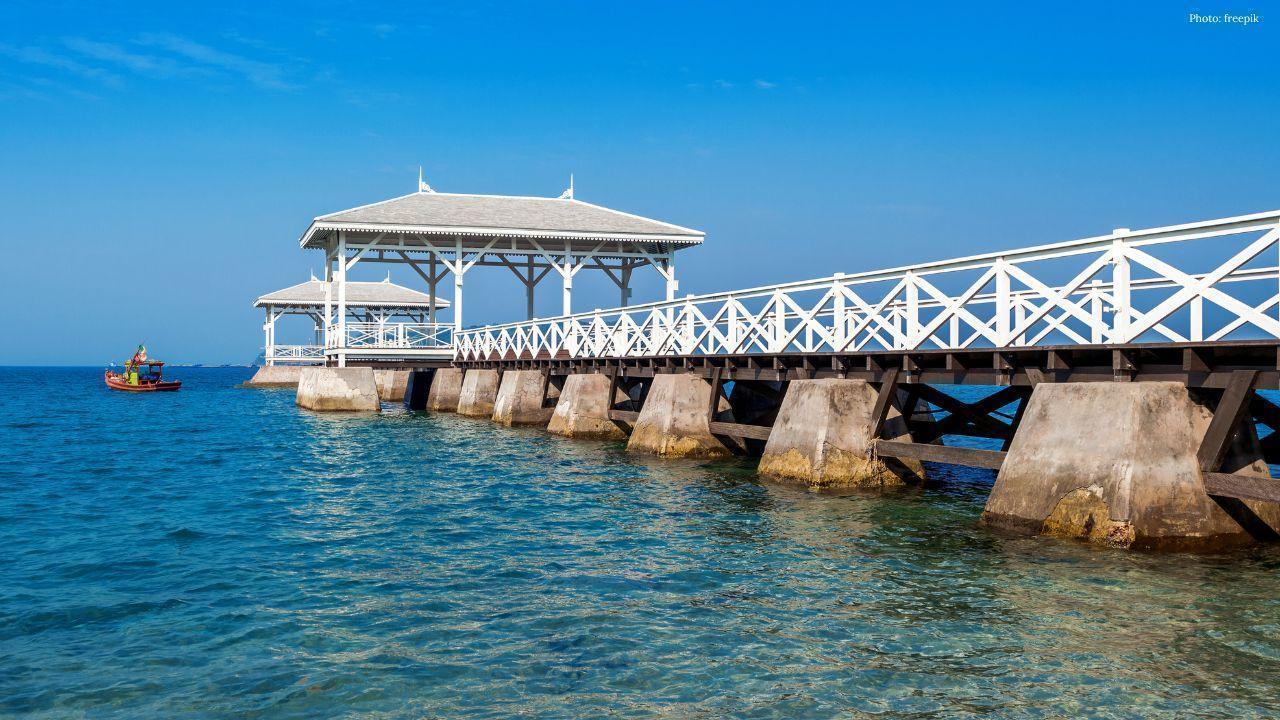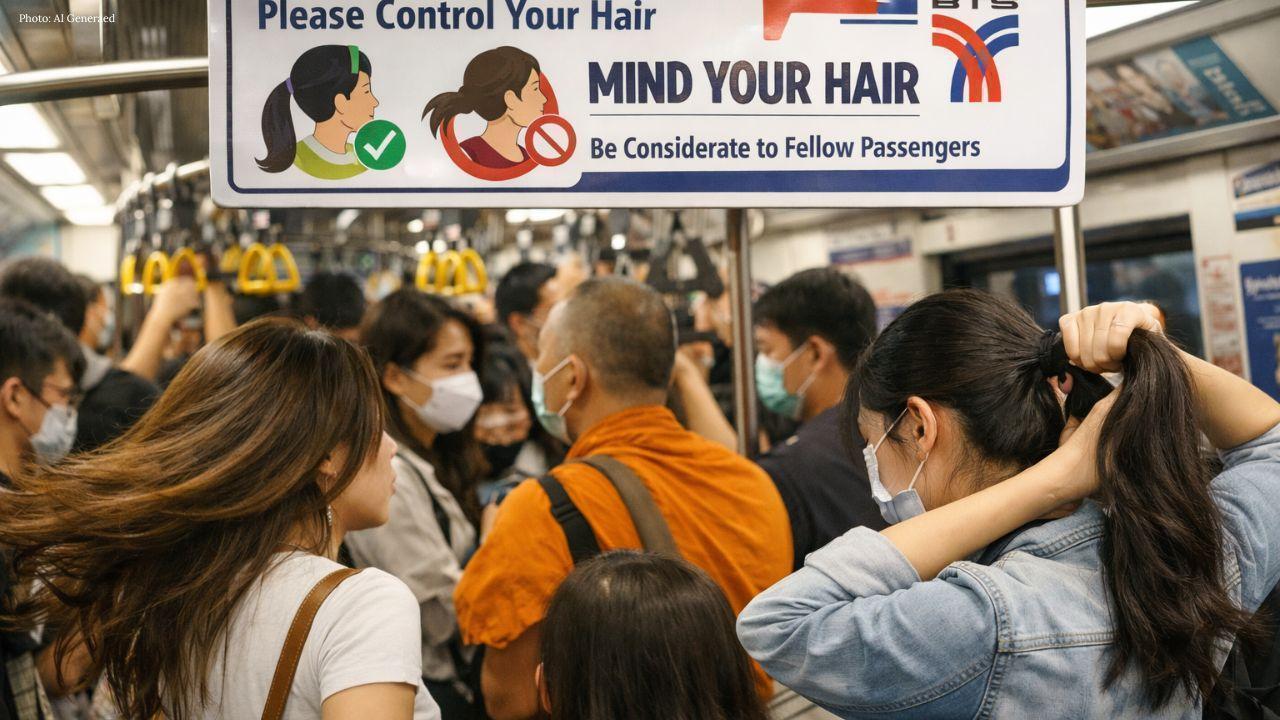You have not yet added any article to your bookmarks!

Join 10k+ people to get notified about new posts, news and tips.
Do not worry we don't spam!

Post by : Anis Farhan
In the world of travel, Asia has always been known as a region full of charm, history, culture, and natural beauty. From busy cities like Bangkok and Kuala Lumpur to peaceful beaches in Bali and tropical islands in the Philippines, Asia offers something for every kind of traveler. The best part? You do not need to be rich to explore Asia. Many travelers from around the world have discovered that Asia can be one of the most budget-friendly places to visit.
Asia is one of the top choices for travelers who want to see beautiful places without spending too much. Many Asian countries offer low-cost accommodation, cheap transport, affordable food, and free or low-priced tourist attractions. Local street food can cost less than two dollars, and budget hotels or hostels are widely available in tourist areas. Countries like Vietnam, Thailand, Indonesia, Nepal, and the Philippines are famous for being very budget-friendly.
Another reason is the variety of experiences. You can climb mountains, visit temples, relax on beaches, explore markets, or learn local cooking—all without spending big money.
One simple hack for saving money is traveling during the off-season. In Asia, many destinations become more expensive during the peak tourist season, which is usually from November to February when the weather is cooler and dry. Flight tickets, hotel rooms, and tours cost more during these months.
If you can travel during shoulder seasons (March-April or September-October), you will find cheaper prices, fewer crowds, and still pleasant weather. Avoiding holidays like Chinese New Year or Diwali also helps to keep costs low.
Flights can be the biggest expense when visiting Asia, especially for travelers coming from Europe or North America. But you can save a lot of money with some smart tricks.
Always use flight comparison sites like Skyscanner, Google Flights, or Momondo to check prices across many airlines.
Be flexible with your travel dates—flying midweek is usually cheaper than weekends.
Booking tickets 6-8 weeks in advance can often give the best deals for international travel.
Consider low-cost airlines in Asia like AirAsia, Scoot, or VietJet for internal flights—they offer regular sales with very cheap fares.
Avoid direct flights when possible. Flights with one or two stopovers are often much cheaper.
Asia has a wide range of accommodation options for every budget. With a little research, you can find clean, safe, and comfortable places to stay without spending too much.
Use budget-friendly websites like Booking.com, Agoda, and Hostelworld to search for hostels, homestays, or budget hotels.
Hostels in Asia are very affordable, sometimes as low as $5 to $10 per night. Many hostels also offer free breakfast and tours.
Guesthouses and homestays are great for experiencing local culture and are often cheaper than hotels.
Consider staying in places just outside main tourist areas—prices drop quickly the further you go from city centers or tourist beaches.
Apps like Couchsurfing can help you find free accommodation with locals if you are open to meeting new people.
One of the joys of traveling in Asia is the amazing food, and the good news is, eating well doesn’t have to be expensive.
Street food is your best friend. In cities like Bangkok, Ho Chi Minh City, or Jakarta, you can have filling, tasty meals for under $2.
Eat where locals eat, not where tourists gather. Local restaurants usually have lower prices and more authentic flavors.
Markets are great places to buy fresh fruits, snacks, and affordable local dishes.
Drink bottled water or refill your water using public refill stations to avoid buying plastic bottles frequently.
Many hostels and hotels provide simple breakfasts, so take advantage of these free meals.
Traveling within Asia can be very affordable if you know the best ways to move around.
Use public transportation like buses, trains, and metro systems. They are much cheaper than taxis and give you a real sense of local life.
In cities, apps like Grab (similar to Uber) offer cheaper and safer rides compared to local taxis.
Night buses and sleeper trains can help you save money on both travel and accommodation because you travel and sleep at the same time.
Renting scooters is a popular budget choice in places like Bali, Vietnam, or Thailand, costing around $5 per day.
Walking or cycling around towns is free, healthy, and lets you discover hidden gems.
Asia is filled with amazing activities and many of them cost little or no money.
Many temples and museums have either no entrance fee or a small fee of $1 to $5.
Beaches, waterfalls, markets, and nature hikes are often free to enjoy.
Look for free walking tours offered in major cities like Bangkok, Kuala Lumpur, or Hanoi, where guides work for tips.
Local cultural events and festivals offer unforgettable experiences without high costs.
In some countries, you can volunteer in exchange for free meals and accommodation—programs like Workaway or Worldpackers can be useful for this.
Tours can sometimes feel expensive, but with a few tricks, you can enjoy activities at lower prices.
Using the internet while traveling can get costly if you don’t plan it well, but in Asia, it’s easy to stay connected cheaply.
Managing your money wisely while traveling saves you from hidden costs.
Speaking even a few words of the local language helps avoid being overcharged. Locals appreciate when tourists make the effort to learn basics like “hello,” “thank you,” or “how much?” and it can lead to better prices or friendlier service.
Simple phrases in Thai, Bahasa, Vietnamese, or Tagalog can go a long way in markets or small restaurants.
Many budget travelers skip travel insurance to save money, but it can cost you more if something goes wrong.
Affordable travel insurance plans are available for under $50 per trip and can cover medical costs, lost luggage, or cancellations.
Some credit cards offer basic travel insurance—check your benefits before traveling.
Being protected means you avoid big expenses in case of emergency, which is smart budgeting.
In Asia, staying longer in one place can actually help you save money.
Asia offers endless travel opportunities for people of every budget. With a little planning, smart choices, and an open mind, you can enjoy beautiful places, tasty food, fun adventures, and memorable cultural experiences without spending a fortune.
The key to budget travel in Asia is being flexible, living like locals, and knowing where to look for deals. Whether you are backpacking across Southeast Asia, exploring hidden gems in South Asia, or discovering the islands of Indonesia, affordable travel is always possible.
Your dream trip doesn’t need to wait. Pack your bags, follow these simple hacks, and enjoy the magic of Asia without breaking the bank.
This article offers general tips and information for affordable travel. Prices may change, and readers should always check local travel guidelines and updates before making travel arrangements.










Tomorrowland Thailand Set for Full‑Scale Asian Debut in December 2026
Thailand to host world‑renowned electronic music festival in Pattaya, expected to draw tens of thous

Malaysia’s January Trade Hits RM272.4b as Exports Surge Penang Leads
Exports climb 19.6% year-on-year to RM146.9b with Penang contributing 44.2% of total shipments says

Penang PKR Exco Fahmi Zainol Pleads Not Guilty in Wife Abuse Case
Penang executive councillor Fahmi Zainol denies charges of voluntarily causing hurt to his wife as c

Palapes Cadet Death Case Military Trainers Face Trial as Court Lowers Bail
UTM Palapes instructors plead not guilty to culpable homicide over cadet’s death court lowers bail a

BTS Urges Passengers to Control Hair During Peak Hours
Bangkok’s BTS Skytrain advises commuters with long hair to avoid flicking or tossing it to prevent d

Minimarkets May Supply Red and White Village Cooperatives
Indonesia’s trade minister says partnerships with minimarkets and distributors can strengthen villag